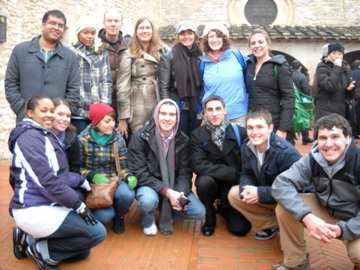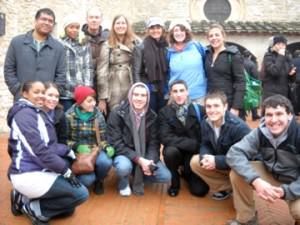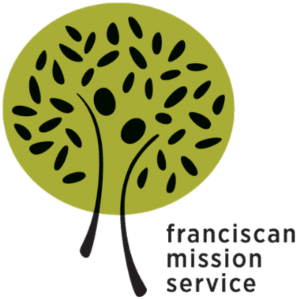Franciscan Friday: Franciscan Education Part 1 – A Student’s Perspective

Come August, students and faculty say goodbye to summer vacation and hello to a new school year. Blocks, streets, even towns dedicated as campuses bustle with knowledge seekers. Education becomes the number one priority in superstores and receives headlines come election season.
As Claiborne Pell once said, “The strength of the United States is not the gold at Fort Knox or the weapons of mass destruction that we have, but the sum total of the education and the character of our people.”
But what does that mean for our fellow Franciscan institutions? What makes a Franciscan education different than any other and why should we care?
From what we can tell, St. Francis had at least a somewhat formal education. He knew how to read the Bible, which at the time was written in Latin and not his native language. Coming from a family gaining wealth and status in the area, his father might have paid someone to give Francis lessons. However, evidence of an emphasis or further education cannot be found, nor is expected.
Yet, for many attending Franciscan schools, the education isn’t just about exercising the mind, so that one may read the word of God, but exercising the spirit so that they may understand it and live it out, too.
 |
| Cardinal Stritch University 2011 Student Pilgrims including Anna Robinson (second to last, bottom row left) and Brian Jens (last, bottom row right). |
“I really appreciated the Franciscan education I received,” says our volunteer Anna, who graduated from Cardinal Stritch University. “Many of my college courses focused on real world projects, which were often partnered with non-profits in the area. To me, St. Francis represented an open-mind and a readiness to give and be present to anyone. We practiced both by doing our projects for charity organizations.”
Brian Jens, also a Stritch student, reflects on how his education opened up his faith to everything around him – “Franciscan education taught me how to find God in all things. St. Francis was known for a lot of things, but I think most importantly was his service to those less fortunate.
Within Assisi the most feared people were the lepers. No one wanted to be around them because people were afraid of attracting leprosy. St. Francis saw something different. He was moved with pity for how much suffering they had, and decided to dedicate the rest of his life to serve the lepers.
His service to the lepers was more than just service to those less fortunate. He believed he saw God working within them, which is why he continued to serve so he could know more about God. This type of attitude of finding God in all things is what I learned the most through my Franciscan education.”
Today, 22 institutions make up The Association of Franciscan Colleges and Universities – that’s more than 22 campuses in the United States dedicated to the kind of education that strengthens the spirit of lay people as well as the mind. Chances are there’s a Franciscan graduate shopping at your grocery store, filing papers in your office cubical, or more probable, volunteering or working for your charity.
Comment Questions:
1) Do/Did you go to a Franciscan institution?
2) Even if you haven’t, what has St. Francis taught you?
Tagged in:

